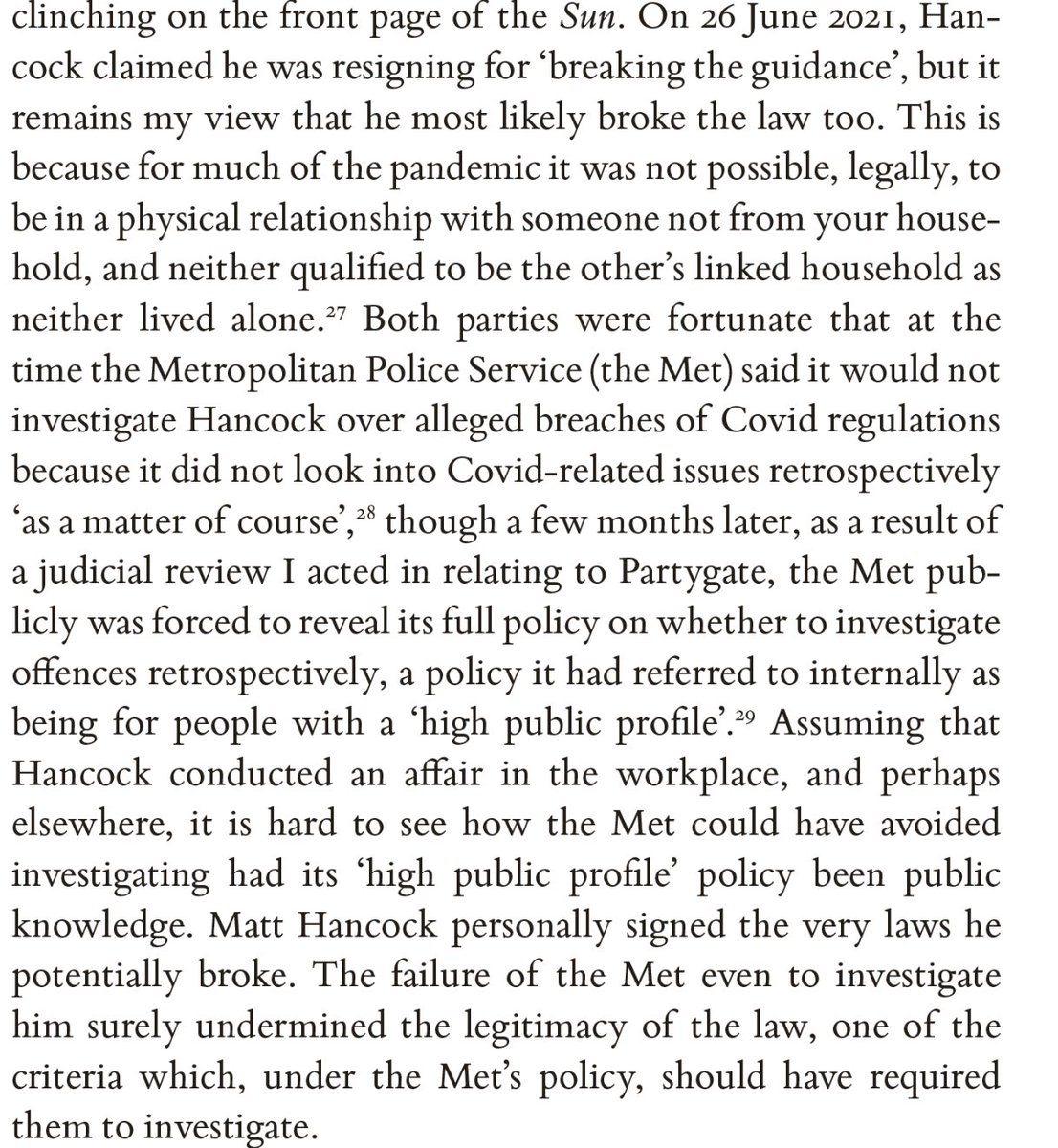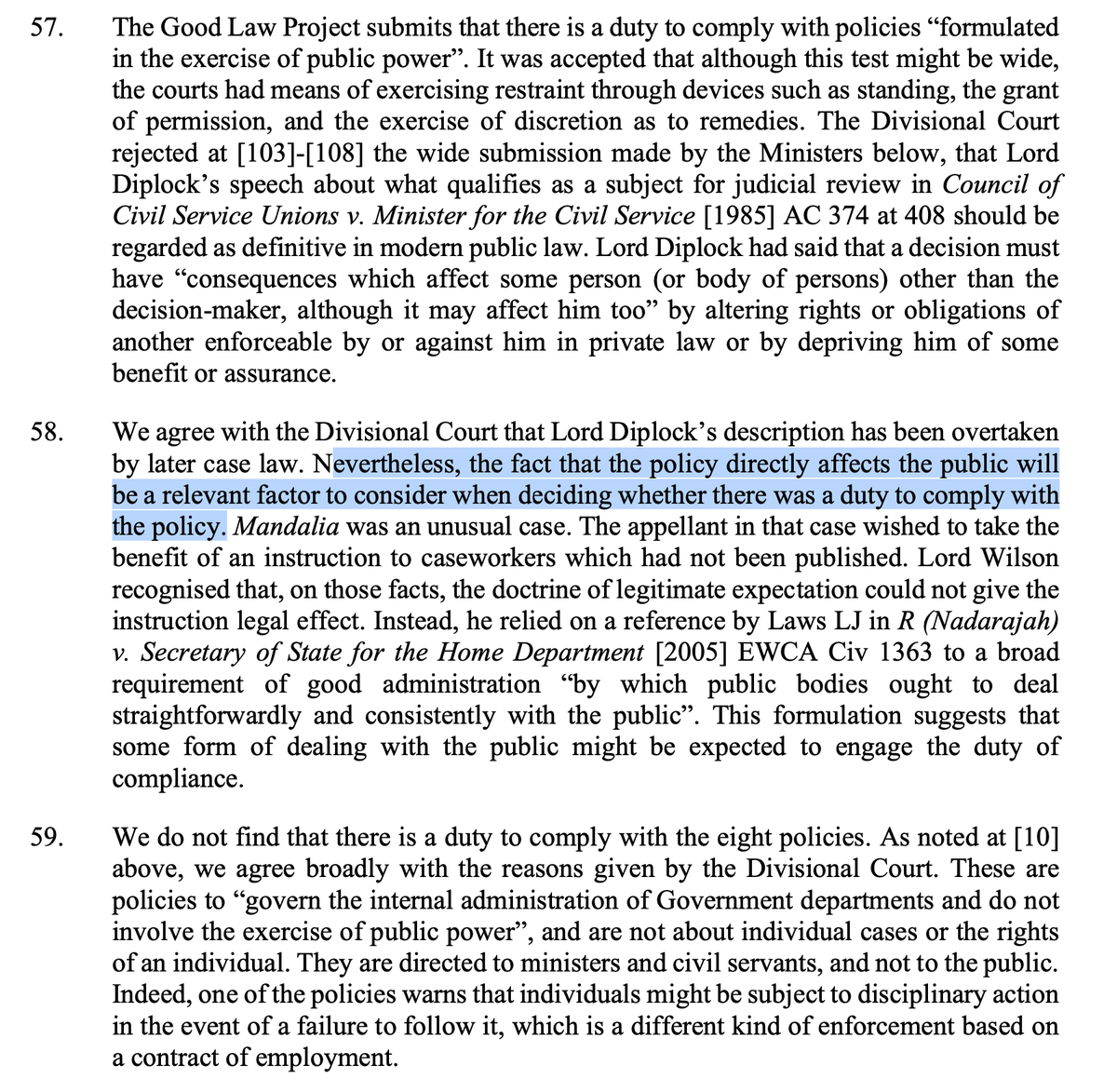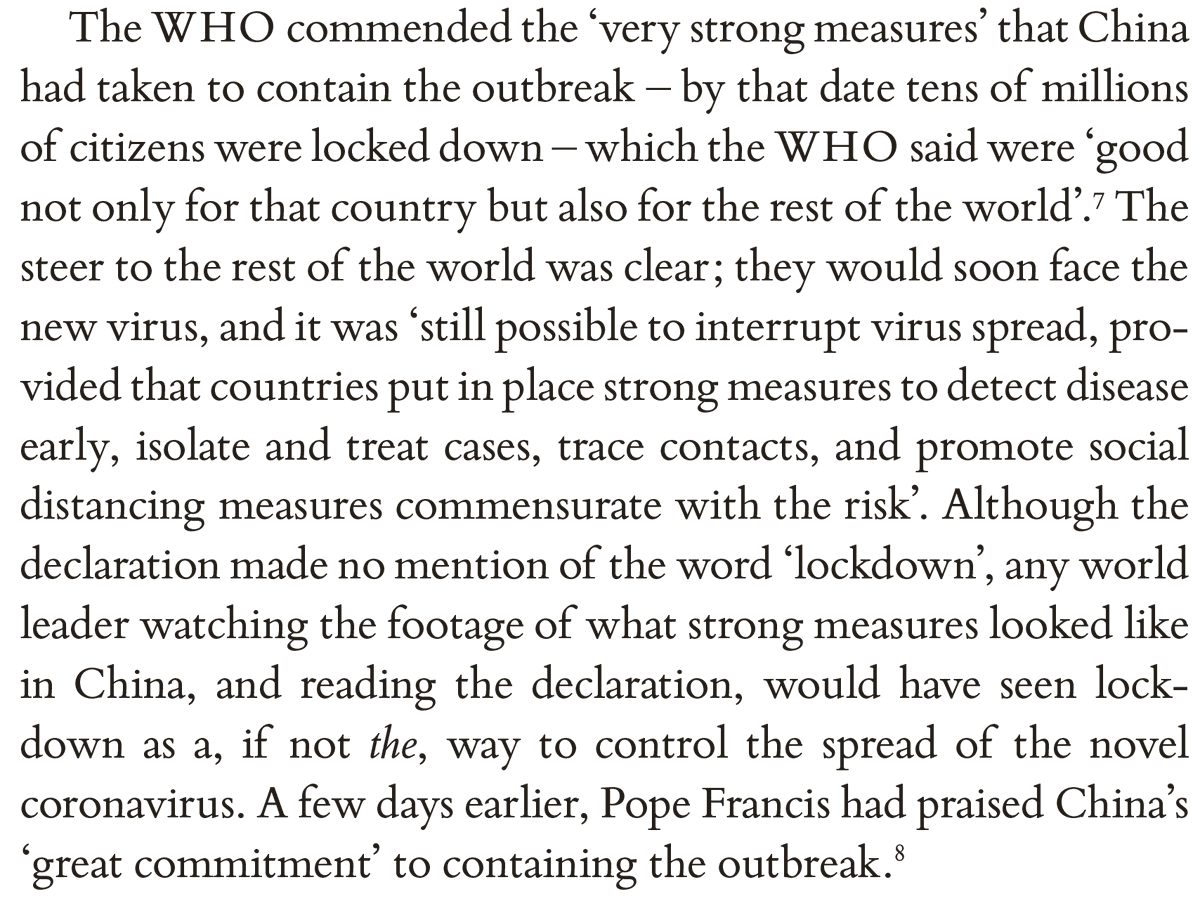
Sorry, have deleted my tweets about Matt Hancock as I got the dates wrong. Hancock says in his book "nothing happened between us until May [2021], after legal restrictions had ended". 

The indoor gatherings restrictions on 2 or more people meeting ended on 14th May 2021 (when Step 3 was introduced). Until then I think that an affair conducted indoors would have been illegal
Note that Hancock is quite vague about the date the affair began - it was exposed on 25th June in The Sun, he says it began in "May". 

This is what I say about Hancock in #EmergencyState (amazon.co.uk/Emergency-Stat…) - I think he was very lucky to avoid a police investigation. 

• • •
Missing some Tweet in this thread? You can try to
force a refresh









